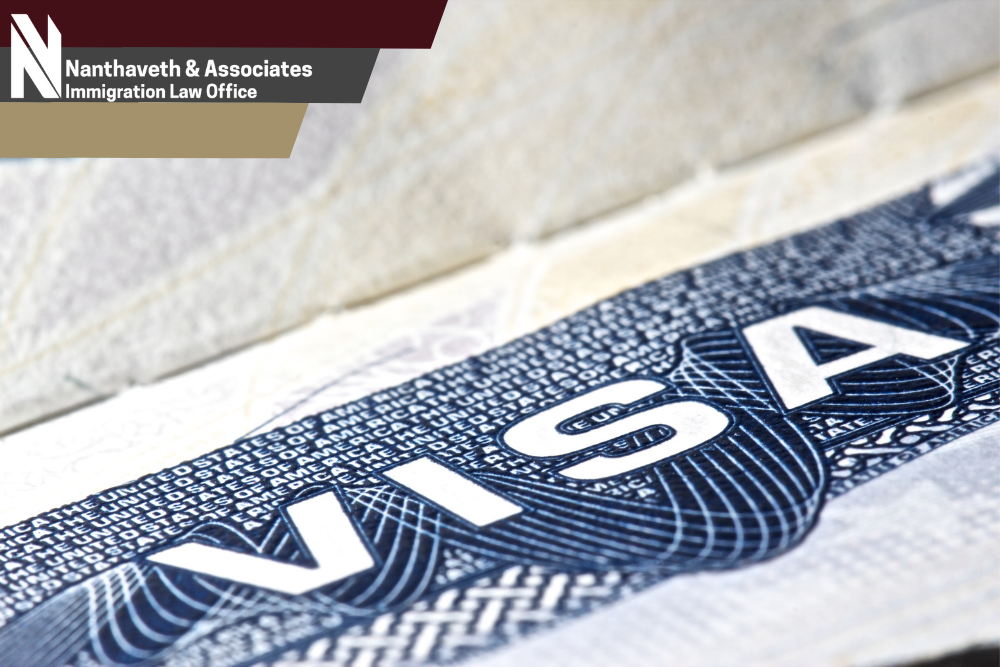Family Immigration
The attorneys at Nanthaveth and Associates know the importance of having an attorney you can trust for your family immigration needs, which is why we are the attorneys of choice in Austin and surrounding areas.
One of the most common ways to obtain an immigrant visa is through family-based petitions, and we are dedicated to making your family’s immigration experience as stress-free as possible. Your family is our priority. Our attorneys have been through the family immigration process themselves and are eager to help with your family’s needs.

Citizens and Lawful Permanent Residents
If you are a U.S citizen or permanent resident, you have the ability to petition for certain family members to receive their permanent residency (green card), K-3 or K-4 Visa, or fiancé visa. Nanthaveth and Associates can help you understand the complicated process required to obtain a visa through family-based petitions.
Fiancé Visas

If you’re a U.S. citizen, you can bring your foreign fiancé to the U.S. so that you two can get married. For many people, it makes sense to work with an immigration attorney who understands the process and U.S. immigration law.
If you want a K-1 visa for your fiancé, you’ll have to intend to marry within 90 days of his or her arrival in the U.S. Your marriage must be valid, too, which means you both have a bona fide (genuine) intent to establish a life together. You cannot get a K-1 visa for your fiancé if the sole purpose of the visa is so that he or she can obtain an immigration benefit – and if you do, you could both be subject to criminal penalties.
After you and your fiancé marry, he or she can apply for lawful permanent resident status in the United States. Lawful permanent residents receive a green card, which entitles them to many more benefits than a visa does. Green card holders can work in the U.S., attend college with local tuition rates, qualify to receive Social Security benefits, and travel more easily in and out of the country.
Fiancé Visa Eligibility
Both you and your intended spouse must meet eligibility requirements to apply for a K-1 visa. You, as the petitioner, must be a U.S. citizen. You must both be legally free to marry, as well, which means that any previous marriages have been legally terminated by divorce, annulment or death.
You and your fiancé must have met each other in person at least once within the 2-year period before you filed your petition unless meeting would violate strict and long-established customs of your fiancé’s culture or social practice, or it would result in extreme hardship to you, the U.S. citizen.
 Can You Sponsor Your Fiancé’s Children?
Can You Sponsor Your Fiancé’s Children?
If your fiancé has children who are unmarried and under the age of 21, they may be able to come to the U.S. on K-2 nonimmigrant visas. It’s a good idea to let your attorney know that your fiancé has children that you wish to sponsor – that way, your lawyer can include them on the appropriate forms when you file your fiancé petition.
K-3 and K-4 Visas
K-3 and K-4 visas are very common. They’re used when a U.S. citizen marries someone in another country, and that person is still abroad.
K-3 Visas for Spouses
If you’re a U.S. citizen, you can use a K-3 visa to bring your spouse to the U.S. while waiting for approval on a Form I-130, Petition for Alien Relative. You must be married and your spouse must want to enter the United States to wait for U.S. Customs and Immigration Services to make a decision on the Form I-130.
You and your attorney must also fill out and file Form I-129F, Petition for Alien Fiancé, in order for him or her to be eligible for a K-3 visa.
If USCIS grants your spouse’s K-3 visa, the Department of Homeland Security will admit him or her for a 2-year period. You can extend this visa, provided you do so in the 120 days before the authorized stay expires.
K-4 Visas for Stepchildren
Your spouse’s children, if they are unmarried and under the age of 21, may be eligible to come to the U.S. while waiting for USCIS’s decision on their parent’s Form I-130. You don’t need to file a separate Form I-129F for your spouse’s children – your attorney will list them on the original form for your spouse.
The Department of Homeland Security will permit a 2-year stay in the U.S. for your spouse’s children. However, if a child has his or her 21st birthday during that time, the stay will expire the day before the child’s birthday.
Learn More About Petitions For A Stepchild To Come To The U.S. With Form I-130

Permanent Residency for Family Members of Citizens and Lawful Permanent Residents
U.S. citizens can petition the government for green cards for some family members. These family members fall into preference categories as follows:
- F1 (first preference): Unmarried sons and daughters who are 21 years of age and older
- F3 (third preference): Married sons and daughters
- F4 (fourth preference): Brothers and sisters of U.S. citizens, as long as the citizen applying is over the age of 21
Lawful permanent residents can petition the U.S. government for green cards for family members, as well. These family members fall into preference categories as follows:
- F2A (second preference): Spouses and children who are unmarried and under 21 years of age
- F2B (second preference): Unmarried sons and daughters who are over the age of 21
Eligibility for Permanent Residency
People who are currently in the United States must meet certain requirements to apply for a green card. Anyone who applies must be physically present in the U.S. at the time of filing Form I-485, which an attorney can help you fill out, and they must have been inspected and admitted or inspected and paroled into the U.S. Additionally, petitioners must:
- Be eligible to receive an immigrant visa, and that immigrant visa must be immediately available at the time of filing
- Still have the familial relationship that qualified them for the visa in the first place
- Not be barred from adjustment of status
- Be admissible to the United States for lawful permanent residence or eligible for a waiver of inadmissibility (or another form of relief)
What Does “Inspected and Admitted” Mean?
A person is inspected and admitted when they present themselves to a Customs and Border Patrol officer at a port of entry in order to come into the United States. A port of entry is a U.S. border crossing or an airport entering the U.S.
What Does “Inspected and Paroled” Mean?
A person is inspected and paroled if they present themselves to a Customs and Border Patrol officer at a port of entry (a U.S. border crossing or an airport entering the U.S.) and the CBP officer inspects them as an alien, and then permits them to enter the U.S. without determining whether they’re admissible to the U.S.
 Can Family Members Work in the U.S.?
Can Family Members Work in the U.S.?
Every visa category has its own requirements for work authorization. Typically, if someone is in the U.S. on a visa, he or she must receive an Employment Authorization Document, or EAD, to legally work in the United States. The EAD is a small plastic card with the visa holder’s photo on it, and it provides that person permission to work for a U.S. employer.
Green card holders may work for any employer in the U.S. and do not need a work authorization to do so. Because green card holders are lawful permanent residents of the United States, they enjoy many of the same privileges and rights that U.S. citizens do – and that includes the right to work for whomever they wish.
Can Family Members Attend School in the U.S.?
Minor children can attend public, charter or private schools in the U.S. as long as they are not in the country on a tourist visa. The family-based visas listed here make children eligible for school. However, older children may need a specific type of visa to attend universities, colleges, technical schools and trade schools in the U.S. If you’re not sure whether a child can attend school on the type of visa he or she has, your best bet is to talk to your immigration attorney to find out.
Can Family Members Travel?
Travel between states is fine when a person is in the U.S. on any of these visas. However, travel outside the United States may be restricted. It’s best to talk to your lawyer if you intend to travel with a visa holder.
Green card holders can travel in and out of the U.S., but long-term stays outside the U.S. can affect permanent resident status.
Familial Connections: Who Can You Sponsor if You’re a U.S. Citizen?
As a citizen of the United States, you can sponsor immediate family members, along with other family members. Visas for immediate family members are available at all times, whereas petitions filed for other family members will be placed on a waiting list. The distinction between the two is set by USCIS as follows:
Immediate Family Members
- Spouse
- Unmarried children under 21
- Parents, if you are 21 or older
Other Family Members
- Unmarried sons and daughters (21 or older)
- Married sons and daughters
- Siblings, if the U.S. citizen petitioner is 21 or older
Who Can Lawful Permanent Residents of the United States Sponsor for Immigration?
As a lawful permanent resident, or LPR, of the United States, you are more limited on who you can sponsor, and all petitions filed by lawful permanent residents will be placed on a waiting list. As an LPR, you can sponsor the following relatives:
- Spouse
- Unmarried children under 21
- Unmarried sons and daughters of any age
If you are interested in sponsoring a family member for a visa, come talk to us. We can help get you and your family on the right path and make your immigration experience as easy as possible. Book a consultation today to speak with one of our attorneys!
Related:
Frequently Asked Questions
Who can be a sponsor?
U.S Citizens and Permanent Residents have the ability to petition for certain family members. Citizens can sponsor a wider range of relatives. Some cases have additional eligibility specifications such as income requirements.
- Citizens can petition for the following.
- Spouses
- Unmarried children under 21
- Sons and daughters that are married and/or above the age of 21
- Parents (if you are 21 or older)
- Siblings (if you are 21 or older)
- Legal Permanent Residents can petition for the following.
- Spouse
- Unmarried children under 21
- Unmarried son or daughter of any age
My child is a U.S citizen, when can they file for me?
Not until they are 21.
My spouse entered the country on a visa that is now expired. Can I still file for her to get her green card?
Yes. If you are a U.S Citizen, then you can file for your spouse even if they have overstayed their visa.
What are the options for a sponsor that does not meet the USCIS income requirements?
If you do not meet the income requirements for an affidavit of support, you can use a joint sponsor. If you cannot find a joint sponsor, you can provide proof of assets to make up the difference between your income and the required income.

11211 Taylor Draper Lane Suite 107
Austin, TX 78759
Tel: (512) 828-3791
Hours: 8:00 AM - 6:00 PM
Payment: all major credit cards, cash, check, money orders, cashiers check
Directions To Our Office
Areas Of Service
Copyright © 2025 | Nanthaveth & Associates | Immigration Law Firm Marketing Specialist MarketCrest
Not all consultations are free, and they are not all conducted by Vi Nanthaveth.

